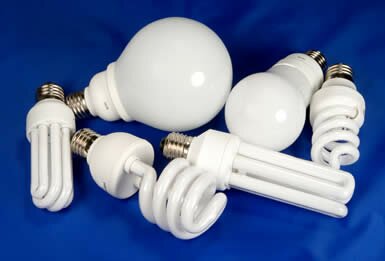
It is not as easy as it appears to select the correct wattage for lighting and other electrical fixtures. There are several factors that need to be considered when choosing wattage for light and other electrical fixtures.
Firstly, the wattage chosen for the electrical fixtures should be such that it will not cause overheating or fires. Secondly, proper assessment of wattage requirements should be made. This is because incorrect wattage will affect overall energy efficiency in the house.
For instance, a twenty-watt fluorescent bulb can give off the same power of light than 75 to 100 watts of traditional of incandescent light bulb.
Thirdly, evaluation of how much lighting is essential for each specific area, like kitchen, bedrooms or living room. Finally, a wattage that matches the specifications of fixtures should be chosen.
It is very important to select the right wattage as a safety measure and to ensure that fixtures are not damaged due to overheating.
If a brown spot is observed on the insulation it means that the wrong wattage of light bulb has been fixed in a fixture. The electrical wiring may also turn fragile due to continuous exposure to high temperatures from the bulb. It is essential to use the same wattage as recommended on the fixture’s warning label in order to prevent accidental fires in the home.
Home Lighting Power Consumption
It is important to know how high wattage affects the efficient use of electrical energy in the house. The efficiency factor is, normally, superior in higher watt bulb and it emits brighter light than a smaller watt bulb.
In view of this, it is advantageous to use one fixture with a high power bulb instead of two lamps with less power. However, if a fluorescent bulb is proposed instead of ordinary incandescent bulbs, the same wattage is not required as a 20 watt fluorescent bulb gives out the same amount of light as a 75 watt incandescent bulb.
A great care is needed while selecting light bulbs for a kitchen as illumination there is quite important. The lighting in the workspace should be normally at least 100 watts of incandescent bulb or 25 watts of fluorescent lighting.
The lighting in working area in the kitchen includes either fixture on the ceiling or ‘under-cabinet’ lights. An electrical contractor can install both these fixtures correctly. The general norm is that there should be at least 100 watts of incandescent bulbs or 25 watt of fluorescent lights for every 50 square feet of kitchen space. This way the kitchen area will be brightly lit and every little object would be clearly seen.
Rooms Ambient Lighting
There is a simple method to assess the ‘ambient lighting’ for a living room or bedrooms. First measure the area of the room and multiply the area in square feet by 1.5 times to arrive the amount of total illumination required. For instance, the area 12 feet by 16 feet room is 192 square feet and the wattage required is 288.
For a room of this size, two table lamps with 150 watt bulbs or 8 fixtures with 40 watt bulbs will be required to get proper illumination. As it is quite difficult to select correct wattage for a home, it will be useful to avail the services of an electrical contractor to suggest how to correctly illuminate a room.
As a general norm, areas that require brightness such as kitchen may require light bulbs with high power lighting. For bed rooms and family rooms, however, lower watts will be sufficient for ambient lighting.
Fluorescent and incandescent bulbs emit different amounts of light with the same wattage and therefore, it is also essential to compare ‘light output’.

